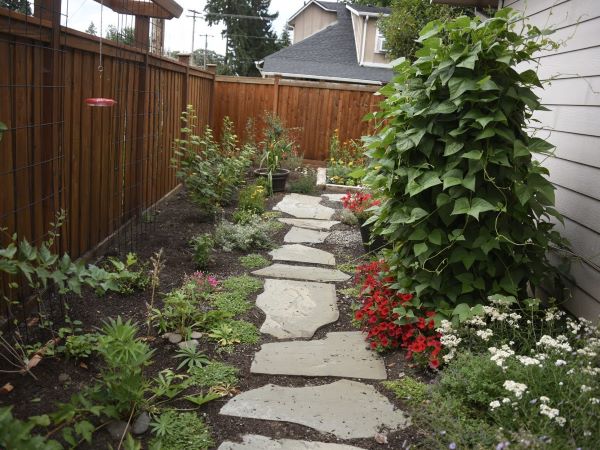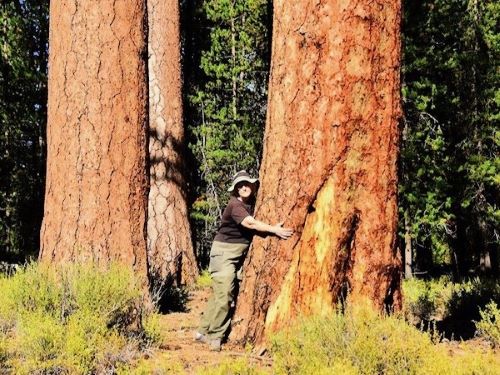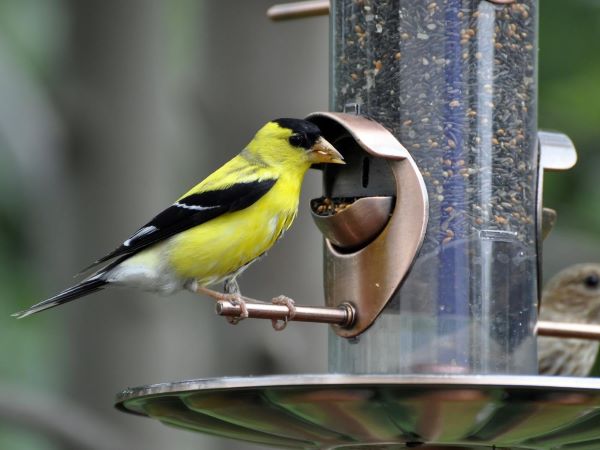Our Habitat Haven volunteers have begun site visits and been enthusiastically received. At the start…
 We are pleased to announce that the City of Eugene and the University of Oregon have received official bee-friendly designation! The Bee City USA program (beecityusa.org) helps us institutionalize the community’s commitment to pollinator protection, provides accountability, and helps raise awareness. The City of Eugene invests in the creation and restoration of native pollinator habitat. Eugene has banned neonicotinoid pesticides (particularly problematic for bees) from use on city property. Additionally, Eugene’s Native Plant Nursery and neighborhood parks are pesticide-free. Lane County Audubon has joined the Eugene Pollinator Protection Committee in collaboration with the Xerces Society, Beyond Toxics, Walama Restoration Project, GloryBee, and the City of Eugene Parks and Open Spaces to protect our pollinators. By helping to protect native bees, we also secure resources, habitat, and health for our bird populations and other wildlife. A recent study highlighted the importance of native plants for birds by demonstrating a decline in a population of birds (the study subject was the Carolina chickadee) when residential yards contained less than 70 percent native plants.
We are pleased to announce that the City of Eugene and the University of Oregon have received official bee-friendly designation! The Bee City USA program (beecityusa.org) helps us institutionalize the community’s commitment to pollinator protection, provides accountability, and helps raise awareness. The City of Eugene invests in the creation and restoration of native pollinator habitat. Eugene has banned neonicotinoid pesticides (particularly problematic for bees) from use on city property. Additionally, Eugene’s Native Plant Nursery and neighborhood parks are pesticide-free. Lane County Audubon has joined the Eugene Pollinator Protection Committee in collaboration with the Xerces Society, Beyond Toxics, Walama Restoration Project, GloryBee, and the City of Eugene Parks and Open Spaces to protect our pollinators. By helping to protect native bees, we also secure resources, habitat, and health for our bird populations and other wildlife. A recent study highlighted the importance of native plants for birds by demonstrating a decline in a population of birds (the study subject was the Carolina chickadee) when residential yards contained less than 70 percent native plants.
Unfortunately, pollinator populations are declining dramatically. A 2017 report revealed that more than 700 species of native bees are in trouble. As for the non-native honey bee, beekeepers have lost an average of 38 percent of their hives each winter since 2010. The devastating declines can be attributed to loss of habitat and native plants, widespread use of pesticides, the spread of invasive species and diseases, and climate change. Why should we care? In general, 75-90 percent of flowering plants rely on animal pollinators, including insects like bees and butterflies and vertebrates like birds and bats. One out of every three bites of the food we eat is pollinated by bees. Bees pollinate about 75 percent of the most common crop species around the world. Pollinators add about $217 billion to the global economy (more than $24 billion in the U.S. alone). In addition, pollinators are responsible for functional ecosystems that support all life on earth.
Although most people are familiar with the introduced honeybee, it turns out that there are about 20,000 species of bees worldwide, with 500 species of bees in Oregon alone. These hard-working bees include species such as mason bees, sweat bees, mining bees, carpenter bees, long-horned bees, and cuckoo bees. Most of these bees are solitary, with each female constructing her own nest and foraging for nectar and pollen to provision her offspring. With no hive to defend, these bees are gentle. Even the social native bees (like some bumblebees) are not particularly aggressive and rarely sting. Native bees are more efficient pollinators than honeybees. According to one statistic, to successfully pollinate an acre of apples, 250 blue orchard bees can do the work of about 15,000 honeybees. In addition, some native bees are able to forage in colder and wetter conditions than honey bees. Researchers have found that sustainable crop production relies on farms having several different species of native bees. Crops like tomatoes, peppers, cranberries, and blueberries require buzz pollination, a service provided by bumblebees, which vibrate flight muscles at just the right frequency to get the flowers to release a burst of pollen.
With the many problems facing our planet today, people often throw up their hands thinking that there is nothing they can personally do to effect change. Bees and birds flit and can take advantage of habitat patches throughout our communities. Along with native habitat in our city parks, informed people throughout our community can have pollinator patches in their gardens or flowering plants in their window boxes to provide the connectivity on which pollinators rely. We sincerely believe that this is one area where individuals in our community can come together to make a difference.
What You Can Do to Support Pollinators:
- Get involved. Raise awareness. Spread the word about the importance of pollinators.
- Volunteer to help the city maintain native habitat.
- Support suppliers of pesticide-free native plants. Make sure that the plants you purchase aren’t treated with pesticides.
- Feed hummingbirds by combining four parts hot water to one part white sugar, boiled for one to two minutes. Don’t use honey, natural or artificial sweeteners, or red dye. Keep feeders clean.
In the garden:
- Provide diverse and abundant native pollinator plants.
- Plant various flowering natives that bloom in succession throughout the growing season. For lists of native pollinator plants and bloom times, see salixassociates.com/resources.html
- Provide clean water for drinking, nest-building, cooling, diluting stored honey, and butterfly puddling.
- Provide undisturbed spaces (leaf and brush piles, un-mowed areas, fallen trees and other dead wood) for nesting and overwintering of wild pollinators. You can also make or purchase native bee nesting boxes.
- Avoid the use of chemicals in the garden. Use pesticide-free materials and plants.
- Allow some mess in your yard and reconsider having a manicured lawn.



